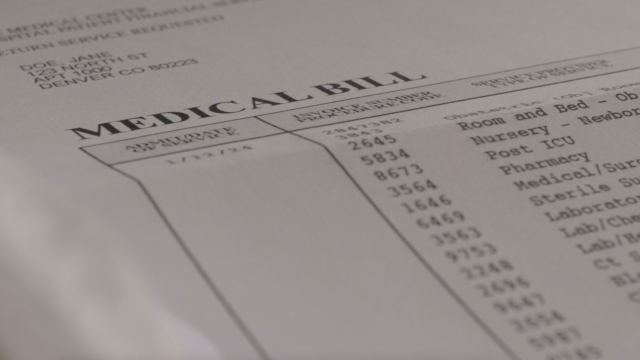Two years, from a distance, can feel like a blink. But within them can come immense change.
Two years ago, we met Samuel Kaye. He was a rabbi in Atlanta, raising money from his congregation to take on a little-discussed issue: medical debt. These days, he's still a rabbi, but now in Toronto, in a country where medical debt is literally a foreign concept.
"I mean, Canadians are stunned when I tell them about my project. They're very impressed. They don't quite understand it," Kaye said.
In America, too many understand it. The latest Census data says 1 in 6 American households holds some form of medical debt, typically due to massive bills at the hospital. A separate analysis estimates 20 million Americans carry medical debit for a total of $220 billion.
Allison Sesso is the president of RIP Medical Debt. Two years ago, the organization was a nonprofit on the rise, using fundraised money to purchase debt from collectors for pennies on the dollar. Two years later, it's erased $10 billion of medical debt for 7 million Americans.
"What we've done is we've been very intentional about not only relieving medical debt, but telling the story of medical debt," Sesso said.
In the last two years, that's meant connecting beyond local fundraisers to local governments — seven, to be exact. And earlier this year, the governor of Connecticut announced plans to use a similar model to cancel 1 billion dollars of medical debt for state residents. It's a lot of change, but the core problem remains the same.
Maanasa Kona is a professor at Georgetown University and an expert on medical debt, "At the end of the day, any policies that are specifically targeted to reduce medical debt are not going to systemically fix the problem, because the problem really is high medical prices."
Canceling debt won't stop people for accumulating debt. In that sense, change is sporadic and has taken different forms. Kona's research found 19 states require nonprofit hospitals to abide by certain standards of financial assistance. Eight states have placed limits on interest from medical debt. Various states offer various protections, but few offer the same.
Which is why, when we speak to Rabbi Kaye two years later, he's thrilled by how much has changed, but saddened by how much hasn't.
"Faith-based organizations care for people in the middle of their suffering. But government is supposed to attack issues in the long term," Kaye said, "You know, it's treatment, but it's not going to stop people from getting hurt later on."
"Changes take time. But the fact that it's getting this much attention, and from our elected officials, is meaningful," Sesso adds.
SEE MORE: NYC program will erase $2 billion of medical debt for some residents
Trending stories at Scrippsnews.com





